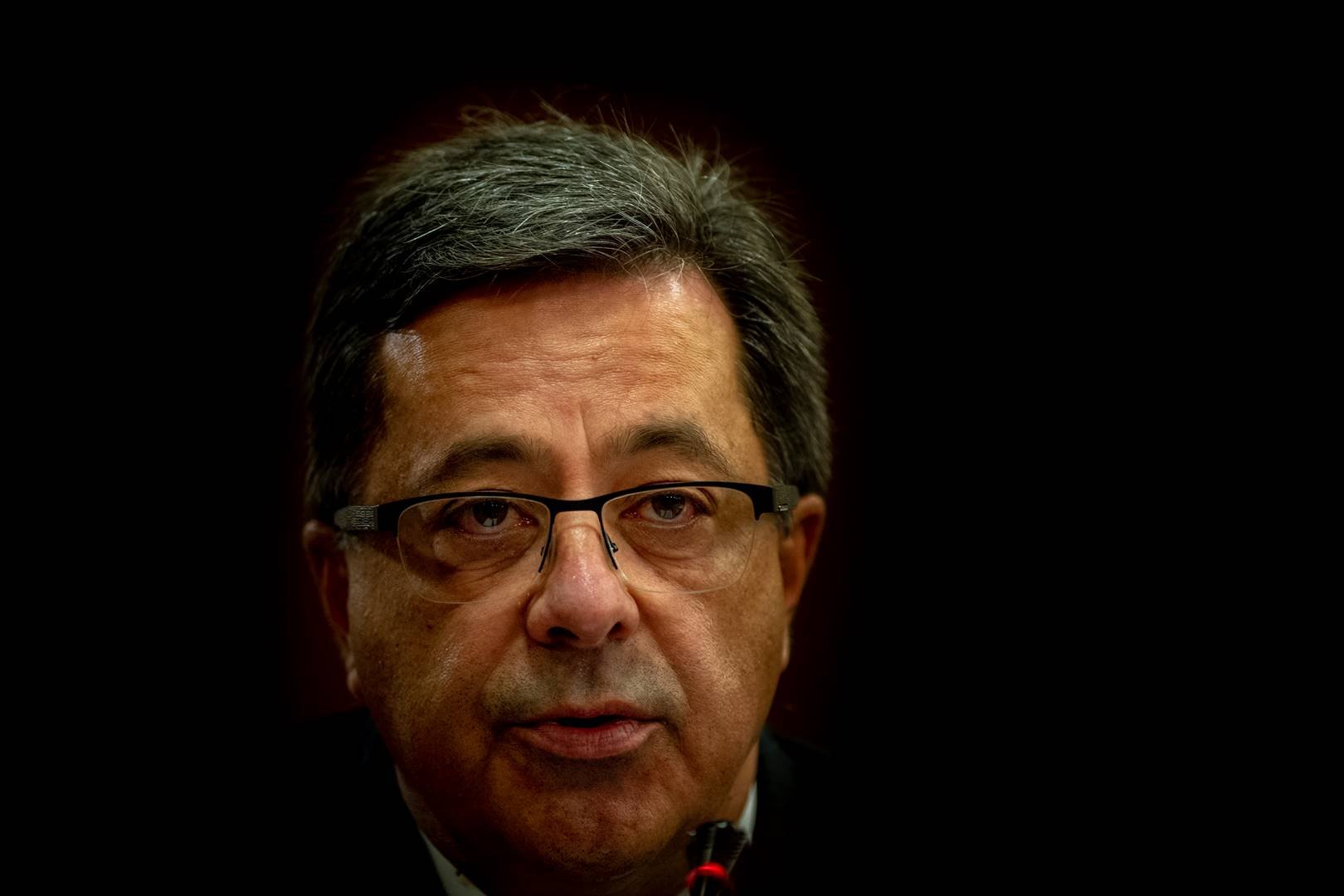
Almost everything we know about the R200-billion collapse of Steinhoff has been uncovered by the media and Steinhoff’s continued refusal to provide access hampers journalists’ ability to tell the full story, says Caroline James.
We all know the story of Steinhoff and Markus Jooste. At least we think we do.
What we do know has been uncovered by careful and thorough investigative journalism, but the majority of Jooste’s and the company’s secrets remain locked in a vault of confidentiality imposed by Steinhoff itself.
One thing we know is that in December 2017, Steinhoff’s auditors refused to sign off on the annual financial statements, Jooste resigned as CEO and the board of directors announced that there were “accounting irregularities which required further investigation”.
This sent the share price plummeting, eventually losing 98% of its value and costing shareholders R200 billion.
We know that this was South Africa’s biggest corporate fraud and that ordinary South Africans were the biggest losers in the company’s collapse: the Government Employees Pension Fund and other investment groups holding individuals’ pensions were major shareholders.
We also know that Jooste is still to face a criminal trial, and that he remains comfortably ensconced in his Hermanus mansion.
But we do not know the whole story of exactly how that accounting fraud was perpetrated or who else played a role.
And Steinhoff and its descendent companies appear to be doing all they can to keep that story hidden.
The most detailed investigation into what happened at Steinhoff was conducted by PwC, who were engaged by Steinhoff in December 2017. After 14 months, in March 2019, they delivered their hefty 7 000-page report to Steinhoff.
Steinhoff, however, released only an 11-page ‘overview’.
And so, we have to trust Steinhoff’s claims about what that PwC report contains and also that 11 pages can sufficiently convey what 7 000 pages were needed to say. We simply cannot do that.
AmaBhungane and our colleagues at the Financial Mail filed separate requests in terms of the Promotion of Access to Information Act (PAIA) for access to the PwC report.
Without being able to see what PwC found, we cannot hope to understand everything Jooste did within Steinhoff, including who helped him and why no one stopped him. This means that the public, the victims of his actions, will not know how or why their savings took the colossal knock they did.
Steinhoff refused both the PAIA requests, maintaining that the report had been commissioned by their lawyers – Werksmans – so that they could provide legal advice to Steinhoff, and was therefore legally privileged.
We therefore joined forces with Financial Mail and took Steinhoff to court, asking the Western High Court to order that they release the report to us.
Steinhoff fought hard.
They repeated their belief that the report was legally privileged and that they had never waived that privilege. They challenged our position that the public interest in the report outweighed any reason for keeping it hidden and denied that it was possible to remove the legitimately confidential information and provide us with the rest.
Steinhoff argued that our right to freedom of expression was not impacted by their refusal to provide the report because we – and other media – had already reported on Steinhoff’s collapse.
Steinhoff lost.
The Court emphasised that “access to information is crucial to accurate reporting and thus to imparting accurate information to the public”.
It held that the report was not covered by legal privilege and ordered Steinhoff to provide us with access within 10 days.
Steinhoff immediately appealed the decision, which suspended their obligation to provide access to the report.
Since then, Steinhoff has introduced new and innovative ways to explain why they can’t give us access.
Last February, Steinhoff introduced the new argument that because Steinhoff was registered in the Netherlands, Dutch and European Union data privacy law applied.
This meant, Steinhoff said, that because the PwC report contained personal information they would be liable to penalties for breaching those Dutch and European laws if they provided us with the report.
This meant that we had to engage the services of a European data law expert to tackle Steinhoff’s new arguments, demonstrating why we believed those laws did not hinder the disclosure of the report in South Africa.
And then, in November last year, Steinhoff added that, because its descendent company – a holding company set up to accommodate Steinhoff’s liquidation – is registered in the United Kingdom, UK data privacy law also applied and similarly prevented the disclosure of the report.
Once again, we roped in the European data law expert.
She restated that Steinhoff have misinterpreted the law and that the foreign laws in question should not serve as a hurdle to releasing the report at home.
What is clear is that Steinhoff has no regard for the need for journalists to be given access to information. It has no conception of the exceptions given by data privacy laws for legitimate journalistic purposes.
It seems leery of the vital role the media plays in investigating, reporting on and holding accountable those responsible for corporate crimes.
All access to information and data privacy laws – in South Africa, the European Union, the Netherlands and the United Kingdom – are explicit on the importance of maintaining access to nearly all information for the purposes of journalism.
As we have made clear in our court documents, our request to access the PwC report is grounded in the South African Constitution’s protection of the rights to freedom of expression – which includes the freedom to receive and impart information and to exercise media freedom.
The Constitution explicitly states that everyone has the right to access information held by a private body when that access is required for the exercise of protection of any right. Our courts have confirmed that this right is triggered when journalists seek to access information.
PAIA is the law that gives effect to this constitutional right. Although it does permit the refusal of access requests on certain grounds, these refusals are not lawful when accessing information would be in the public interest and would reveal evidence of a ‘substantial contravention of, or failure to comply with, the law’.
To us, there cannot be a more clear-cut case of the public interest in accessing documents from a private company.
With so many ordinary citizens and pensioners having suffered because of Jooste’s conduct, and without criminal prosecutions having been brought against him in South Africa, it is up to the media to investigate how Steinhoff was able to defraud investors so substantially and for so long.
The Supreme Court of Appeal is due to hear Steinhoff’s appeal in the first half of 2024. This will be the next chapter of our continuing fight to tell the whole story of the Steinhoff implosion.
Let’s hope it will be the last.
News24 encourages freedom of speech and the expression of diverse views. The views of columnists published on News24 are therefore their own and do not necessarily represent the views of News24.






Recent Comments